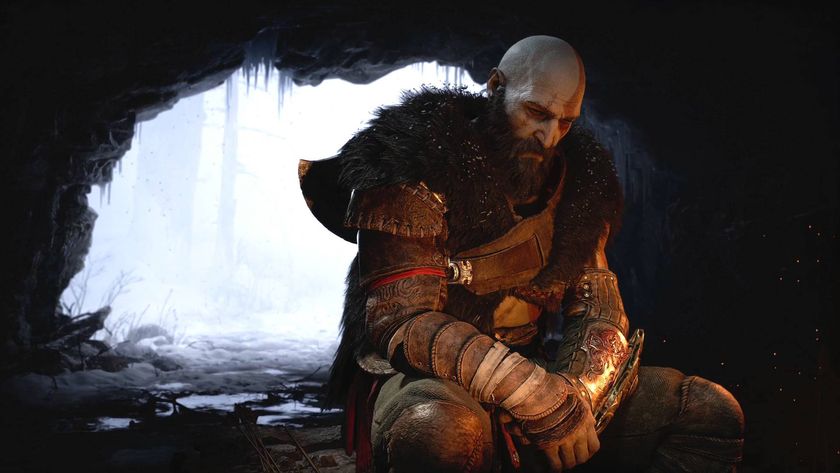Best superhero origin stories
Explore where your favorite heroes came from with these best superhero origin stories
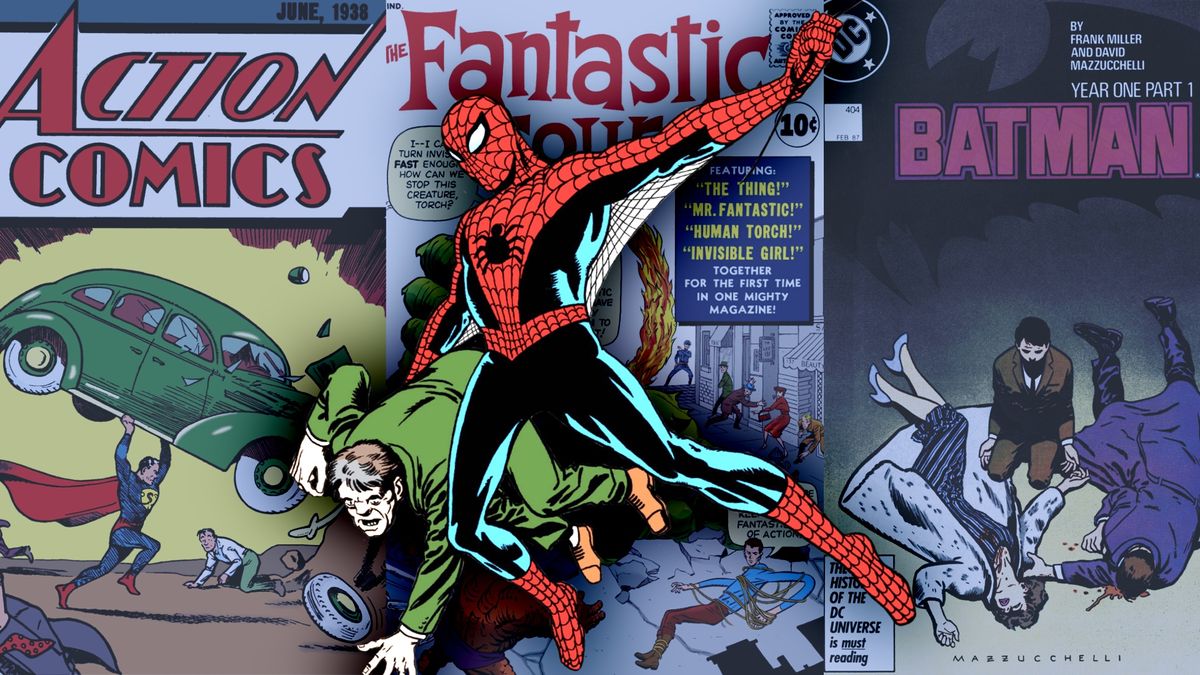
Everyone loves a superhero origin story…
Good thing too because movie and TV studios are banking on it - there'll be lots of them on the big and small screens in 2022 alone.
In fact, two of them are arriving just this week, with Moon Knight premiering on Disney Plus and Morbius arriving in theaters.
Of course, all of these characters and the roots of their origin stories started on the pages of comic books. But which stand out among them all? When talking about superhero origin stories, the best are not the ones that broke the mold - they're the ones that literally made the molds.
You're probably familiar with many of these famous stories already, but take a look as we take an in-depth look at and rank the best superhero origin stories of all time.
10. Green Arrow

Far from the only arrogant-rich-guy-made-good on this list, Green Arrow still has the unique distinction of being one of the first characters to have a truly compelling 'riches to rags' style origin.
Taking inspiration from characters like Robinson Crusoe and Robin Hood, Oliver Queen was a young playboy who was marooned on a desert isle after a shipwreck sent him overboard. At first struggling to survive without the luxuries of his rich life, Queen eventually learned to rely on the archery and survival training he had received as a child. After rescuing a passing freight ship from pirates, he realized that he could use these abilities to help those less fortunate than him, rather than looking down on them.
Comic deals, prizes and latest news
Get the best comic news, insights, opinions, analysis and more!
Interestingly, though this is his most popular (and most retold) origin story, this isn't his original origin.
When he was created in the Golden Age of comics, Oliver Queen was an archaeologist specializing in Native American culture, who took up a bow to fight crime after his museum was burned down. It wasn't until Jack Kirby got control of the character in his pre-Marvel days that he revised the story to the one we all basically know now.
Andy Diggle and Jock updated the story with Green Arrow: Year One, and it became cemented as the origin, even carrying over to TV's Arrow (ever so slightly altered, of course). So there you have it: Green Arrow's behind-the-scenes origin is almost as interesting as his in-continuity story.
9. Green Lantern
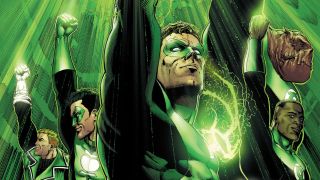
A product of the superhero revival that sparked the Silver Age and birthed a new generation of characters, Green Lantern is, perhaps, one of the most innovative updates to an older character that took place during that time.
Preceded by a successful revival and revision of the Flash, DC (then still called 'National Comics') decided to continue their trend and reinvigorate the power-ring wielding Green Lantern. This time, however, the character was Hal Jordan, a daring test pilot who received his ring not from a magical benefactor, but from a dying alien who was desperate to pass on his station in an intergalactic peacekeeping force to the nearest worthy candidate.
Summoning Jordan to his side, the alien known as Abin Sur told Jordan that he had been chosen to receive the greatest weapon in the universe - a ring that could create anything its wearer could envision - because he was completely fearless and totally honest. Upon accepting the ring, Jordan also received entry into the Green Lantern Corps and found himself thrust into a universe of strange aliens, and extraterrestrial villains.
Though there have been some wrinkles added to latter-day tellings of the tale, the original idea of the first real 'sci-fi superhero' of the Silver Age set the stage for comic books with a wider lens and a more creative focus on the issues of the day.
8. Iron Man
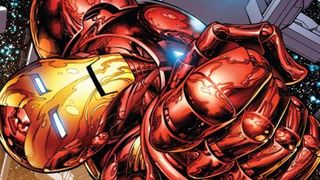
Tony Stark may be the ultimate example of human ingenuity. Gifted with great intellect and a daring spirit, Stark was a billionaire playboy who had it all, using his wealth - garnered from producing innovative weaponry - in pursuit of his own selfish whims.
After being taken prisoner by enemy combatants in the Vietnam War (or the Gulf war, in later versions), Stark was forced to use his skills as an engineer and arms designer to build a weapon of mass destruction. Kept alive only by the treatments given to him by his captors after shrapnel lodged near his heart during his capture, Stark had little choice but to obey. That is until he met Ho Yinsen, his fellow captive, and a brilliant scientist who would be working with him to build the weapon.
Under Yinsen's guidance, Stark instead used the materials provided by his captors to build a suit of nearly invincible armor loaded with weapons and, more importantly, a device designed to keep him alive without the assistance of his captors. After Yinsen sacrificed himself to ensure Stark's escape, Stark returned home and began using the armor, and his other inventions, in pursuit of more noble goals as the invincible Iron Man.
Perfectly emblematic of the arms race that took place during the Cold War, Iron Man has since grown into a symbol of the best - and worst - aspects of the idea of superheroes, presenting a complicated and captivating morality play about the difference between right and might.
7. Fantastic Four
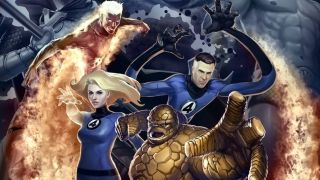
The family that started it all, the Fantastic Four are perhaps the ultimate 'atomic age' superheroes. Reed Richards was a brilliant scientist who, along with his friend, ace pilot Ben Grimm, plus his young paramour Sue Storm, and her brother Johnny, launched himself into space in an experimental rocket of his own design.
When the ship was bombarded by mysterious cosmic rays, it fell back to earth, crashing in the wilderness. Though all four members of the rocket's crew survived, the strange energy they had encountered in space had changed their bodies in wondrous, and, in some cases, grotesque ways.
Refusing to let their strange circumstances become a disadvantage, Richards leads the group in becoming a team of adventurers calling themselves the Fantastic Four who used their new powers to save the world from strange threats and discover alien worlds and other dimensions.
More explorers than superheroes, the Fantastic Four set the mold for the family dynamic and often psychedelic and innovative stories for every Marvel Comics character thereafter.
6. Captain America
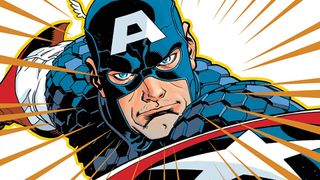
As a young child, Steve Rogers contracted polio, and though he survived the often deadly disease, it left his body sickly and weak. Despite his small frame, Rogers had an indomitable spirit and a strength of will that led him to attempt to enlist in the US Army over and over, desperately trying to fight for his country in World War II.
After countless rejections due to his poor health, Rogers finally found a home in Project: Rebirth, an experimental program meant to turn his weak body into the perfect human, a soldier who operated a peak efficiency and possessed incredible strength. The project was a success, but Nazi saboteurs ensured that the formula that turned Rogers into a super-soldier would die with the inventor of the process.
Left as the only survivor of the Project: Rebirth rather than the first in a long line of super-soldiers, Rogers became the country's most important soldier, the hero known as Captain America. Using the strength granted by the super-soldier serum, and his own inherent nobility and heart, Captain America became the ultimate symbol of patriotism in a time when Americans needed a hero both on the page and off.
A perfect example of patriotism in action, Captain America encouraged those who feared WWII would drag on forever to have hope and courage in the face of a seemingly insurmountable foe.
5. Captain Marvel / Shazam

More than anything, Captain Marvel's (or Shazam's, to use the name of his most recent incarnation) story can be described as the ultimate tale of wish fulfillment.
After losing his parents to a mysterious accident while they were on an archaeological dig, homeless orphan Billy Batson was led into an eerie underground chamber filled with statues of the "seven deadly enemies of man," where he met the ancient wizard Shazam, who granted Billy incredible powers which were bestowed by a bolt if lightning whenever Billy spoke the wizard's name. As a result of this, the teenage Billy took the form of the full-grown and adult Captain Marvel every time he invoked these powers.
The story of Captain Marvel (now called Shazam! full-time) is about growing up, realizing the responsibility that comes with adulthood, and trying hard not to lose your innocence in the face of a jaded and harsh world.
While Billy's story quickly grew to include a large cast of strange characters that shared some aspects of his gift, it's hard to top the original take of the young, hard-luck kid who suddenly got the power to do everything he ever wanted, and then realized he had the responsibility to do the right thing, even if it meant leaving his own dreams behind.
4. X-Men
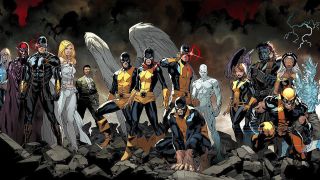
It may be the simplest of origins, but the story of the X-Men carries an incredible weight nonetheless. Rather than being bombarded by energy, given powers by aliens, or using their ingenuity to devise weapons for themselves, the characters of the X-Men are 'mutants,' or people who were born with a genetic anomaly that gave them incredible abilities.
While there were a few other characters who had in-born powers before them, most of those characters were from far-off worlds or strange civilizations. The X-Men were the first characters to be just like normal humans, but with generally unseen differences that made them special.
More importantly, the X-Men have suffered for their mutation. As the stories of the superteam became increasingly centered on the persecution and mistrust of mutants (Homo Superior) by humans (Homo Sapiens) it became impossible not to draw parallels between the mistreatment of the mutants, and the indignities suffered by numerous groups throughout history, and into the present day.
Although they didn't start out quite as socially conscious as they are now, the X-Men's incredible mutations set the stage for an ongoing saga of the nature of humanity and the power of acceptance.
3. Superman
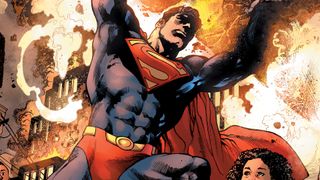
Rocketed from his dying homeworld by his scientifically advanced mother and father seconds before its destruction, the infant Kal-El crash-landed on Earth, where he was raised as a human by his adoptive parents until he came of age, and discovered that Earth's environment activated his incredible powers, which he has since used as the world's greatest protector, Superman.
It's a story we've all heard, and it may be the most iconic tale in comics.
However, not many people realize that it took several years before Superman's full origin was told, and even longer for him to reach the level of power and superheroics that we all know him for. While it can be accurately said that nearly all superheroes stem from Superman (he was the first, after all), very few have managed to use a similar origin as effectively as the Man of Steel.
Moreover, there are no characters whose origin, even if it could be considered more compelling, is better known or more easily recognizable than Superman's.
2. Batman
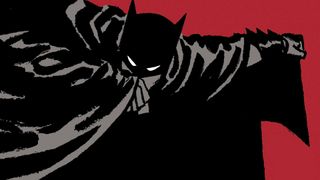
Batman's origin is one of the most tragic in all of comic books, setting the stage for plenty of heroes over the decades who suffer great injustice and spend their lives seeking vengeance. As a young boy, Bruce Wayne and his parents came face-to-face with an armed mugger after leaving a movie theater through an alley. After a scuffle, the thief panicked, firing his gun twice, and killing both of Bruce's parents.
Inheriting his parents' vast fortune, Bruce dedicated the next portion of his life to becoming the perfect weapon against crime and criminals. Traveling all over the world, Bruce studied under numerous masters of different arts, becoming the world's greatest detective, and reaching the pinnacle of human potential. Finally finding inspiration in the terrifying silhouette of a bat, Wayne took up the mantle of the Batman, Gotham City's Dark Knight.
With a singular dedication to preventing and avenging crimes like the one he suffered as a child and armed with an arsenal of gadgets and skills with which to do so, Batman bridged the gap between superheroes and their predecessors, pulp heroes like the Shadow and Doc Savage.
Most importantly, Batman birthed the concept of the antihero, a character who does the right thing, but isn't always the shining example that some of his colleagues are. And, while the concept of the antihero has gone to great extremes in more recent years, none of them would exist in their current form if Batman hadn't paved the way.
1. Spider-Man

Peter Parker was one of the first superheroes that the audience could really identify with. He struggled with social interactions, suffered from bullying, and lead an uninteresting home life anchored by his loving aunt and uncle.
All of that changed, however, when he was bitten by a radioactive spider while on a scientific field trip, which altered his DNA and imbued him with incredible strength, the ability to cling to walls, and an uncanny "spider-sense" that alerts him to danger. Using his own scientific ingenuity, Peter also created a pair of "web-shooters," which produce a special chemical version of a spider's webs.
At first, Peter tried to use his powers for his own gain, competing in a televised wrestling match to earn money to help his aunt and uncle meet their financial burdens and to buy a car. After the competition owner stiffed him out of the money he earned, Peter let a thief that was stealing the owner's money escape, refusing to help stop the robbery, even though he could have easily done so.
Later, Peter discovered his uncle Ben had been murdered by a car thief. Tracking the car thief to a warehouse where he was hiding from the police, Peter discovered, to his horror, that the thief was the same one he failed to stop at the television station.
From that day on, Peter has used his powers as the Amazing Spider-Man, flying into danger and using his abilities to protect those who can't protect themselves even when it costs him dearly. Spider-Man operates under the mantra, "With great power, there must also come great responsibility."
Spider-Man's origin combines all of the most classic aspects of pathos, tragedy, and scientific wonder into the perfect blend for a superhero origin.
I've been Newsarama's resident Marvel Comics expert and general comic book historian since 2011. I've also been the on-site reporter at most major comic conventions such as Comic-Con International: San Diego, New York Comic Con, and C2E2. Outside of comic journalism, I am the artist of many weird pictures, and the guitarist of many heavy riffs. (They/Them)
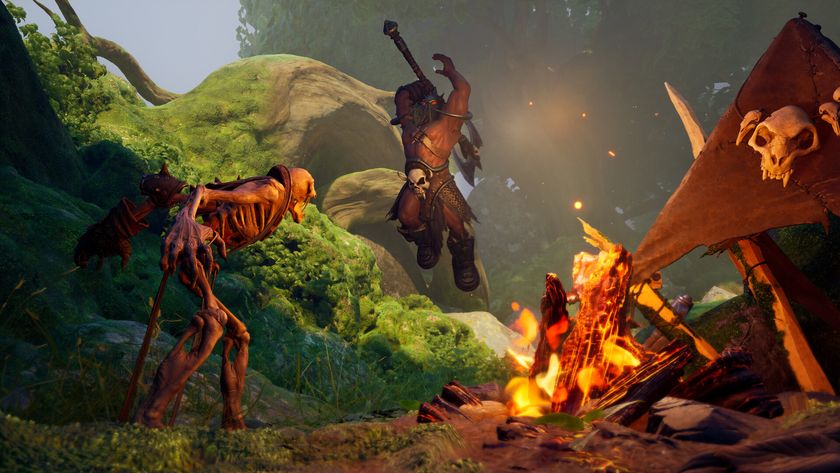
Ex-World of Warcraft designer says the stagnating "meta" in today's RPGs "really sucks," and Marvel Rivals is a good example of how to solve it
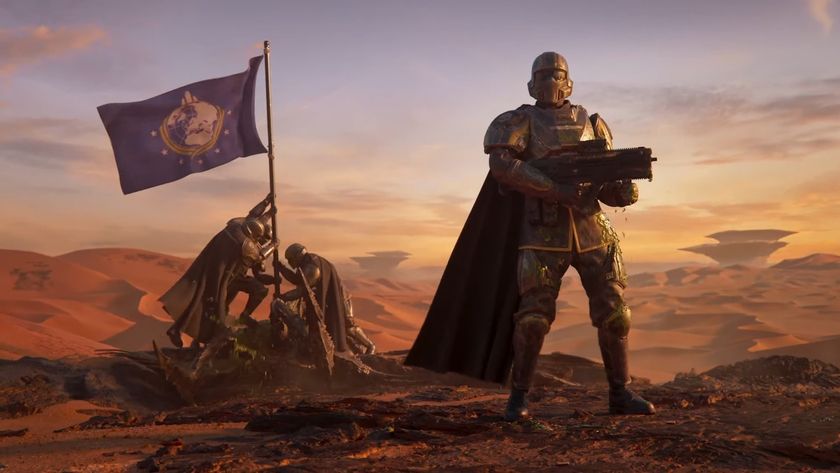
To celebrate Helldivers 2's first birthday, GM Joel recalls his favorite community moments that are now "canon" and "part of Helldiver lore"
Most Popular








